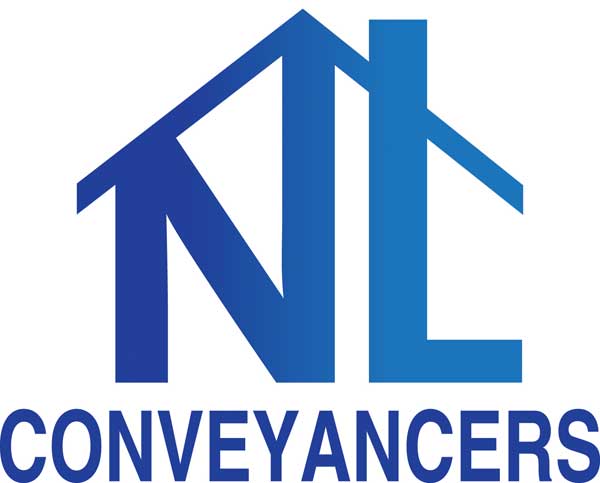Buying Property
Professional & Friendly AdviceFree pre-purchase advice
Buying a Property
Purchasing a property is arguably one of the biggest and most important financial decisions you will make in your life. To ensure you are fully informed prior to taking this step, consult a Registered Conveyancer. You are free to appoint your own Conveyancer.
Your chosen Conveyancer should guide you through the complicated, but very exciting world of purchasing real estate. They will also be able to clarify any unfamiliar issues and can assist you with all matters affecting the purchase of property.
If you have found a buyer and negotiated a deal without requiring the assistance of a Real Estate Agent, you will require a Conveyancer to prepare the legal documentation to make the sale binding and compliant. Contact us and we will talk you through the whole process.
Buying a home or investment property can be exciting, frustrating, and even intimidating. Your conveyancer plays an important role in the purchasing process, offering advice and assistance on matters including:
- Types of title and forms of ownership
- Your cooling-off rights
- Available grants, concessions and rebates
- Fees and charges, including rates & taxes to be adjusted
- Change of ownership notifications
- Your legal obligations including your insurance responsibilities
- The meaning of any encumbrances or caveats
- Understanding special conditions or “subject to?” clauses
- Requesting special conditions
When should I talk to a conveyancer?
The earlier the better! You don’t need to wait until you are ready to sign a contract – it makes sense to select your conveyancer as soon as you decide to buy or sell. And never sign anything before you’ve asked for your conveyancer’s advice – it is always better to be safe than sorry!
Services involved in purchasing
The specific conveyancing services involved in a purchase include:
Where appropriate;
- Reviewing the contract before you sign
- Searching the certificate of title to ensure proper ownership
- Searching with government departments and local authorities for anything affecting the property
- Advising on the information in the statutory disclosure statement (referred to as a Form 1)
- Compliance with all special conditions and time limits
- Preparing the prescribed client authorisation form and arranging for its signing
- Verifying the identity and authority of the signatories of the client authorisation as required by the Registrar – General
- Preparation, certification and stamping of documentation
- Liaising with your proposed lenders and financiers
- Calculation of adjustments of rates and taxes
- Preparation of settlement statements
- Properly accounting for all monies expended or held in trust; and Attendance at settlement on your behalf
Cooling off rights
Section 7 (aka Form 1) – Understanding Forms
Other information including
- Special Conditions
- Insurance
- Building & Pest inspections
- Costs involved
- Some general fees include
- Stamp Duty
- Registration on Transfer
- Government search fees
- Strata or Community Title
- Conveyancers Fees
Costs associated with the purchase of a residential property?
The main costs are:
- Stamp Duty on Transfer
- Lands Titles Office registration fee on Transfer
- Conveyancing fees
- Search costs and disbursements
- Adjustments of Rates and Taxes
- Finance fees and charges.
Our conveyancing costs
Fill out our Online Quote form to get a quote for the work we perform. It's easy and we respond very quickly.
Verification process
Verification of Identity
The verification process involves you attending a face-to-face in-person interview with your Conveyancer or their Agent. At that interview, you must produce particular documents that verify that you are the person you purport to be. There are various Categories of documents that you may produce but you must produce:
the highest category of documents possible, and
all documents from that Category.
The various Categories of Documents are set out below.
The person conducting the interview is required to take copies of these documents.
If you are unable to produce your passport or driver’s licence or form of photographic proof of age card, you need to be accompanied by some-one (called a Declarant) who can identify you. Details of that additional process are set out below.
If you are not an Australian citizen or resident, limited categories of Documents may be used. Details are set out below.
Category 1: A Passport plus either an Australian driver’s licence or Proof of Age Card (photo)
Category 2: A Passport plus
a full birth certificate, citizenship certificate or descent certificate, and
a Medicare, Centrelink or Department of Veterans’ Affairs card.
Category 3: An Australian driver’s licence or form of photographic Proof of Age Card plus
a full birth certificate, citizenship certificate or descent certificate, and
a Medicare, Centrelink or Department of Veterans’ Affairs card.
If you cannot provide the above documents please contact your Conveyancer who will advise what other documents to produce.
There is a fee of $55.00 per person to be identified payable at time of Verfication.
Verification of Authority
Why Verification of Authority is Required
Verifying the authority of an individual to enter into a conveyancing transaction is part of the due diligence required of conveyancing professionals.
Verifying parties' authority mitigates the risk of fraud and gives other parties to the transaction confidence that they are dealing with a person who has the authority to enter into the transaction.
What documents can be used to verify a person's authority
The type of documents used to verify a person’s authority will differ depending on the conveyancing transaction.
These documents include:
- a current local council or water rates notice for the land
- current utility bills for the land
- a current land tax assessment notice for the property
- loan documentation connecting the party to the land
- the mortgage granted by the mortgagor
- the contract for the sale of land
Electronic Lodgement
Nicole is a PEXA registered Conveyancer who can advise you how your property can be settled electronically. This process gives you greater certainty of your settlement occurring on time, instant registration (so the property is in your name instantly), and if you are selling you, receive funds in your nominated account on the day of settlement.
What is e-Conveyancing?
- e-Conveyancing minimises the manual processes and paperwork associated with property settlement by enabling lawyers, conveyancers and financial institutions to transact together online.
- It enables you to lodge documents and complete financial settlements electronically.
- e-Conveyancing also reduces the risk of errors and delays, giving you and your clients greater certainty of successful, on-time settlement.
Fast
Less time preparing documents and no need to attend settlement.
Efficient
Secure electronic funds disbursement - no organising bank cheques.
More Information
www.pexa.com.au
Resources
Electronic Settlement
www.pexa.com.au
Australian Institute of Conveyancers (SA Division)
www.aicsa.com.au
SA Government Calculators
www.sa.gov.au
Obligation FREE pre-purchase advice
We offer Free pre-purchase advice for all our clients to help them better understand the whole process and what is required.
Office
Visit the team in person at our Yankalilla office.
Mobile Service
Our Mobile Service offers our clients flexibility and convenience.
After Hours
We're happy to see you after hours to better suit your needs.
Hours
Monday
8:00am - 6:00pm
Tuesday
8:00am - 6:00pm
Wednesday
8:00am - 6:00pm
Thursday
8:00am - 6:00pm
Friday
8:00am - 6:00pm
Weekends
By Appointment
After Hours
By Appointment
Quick Links

